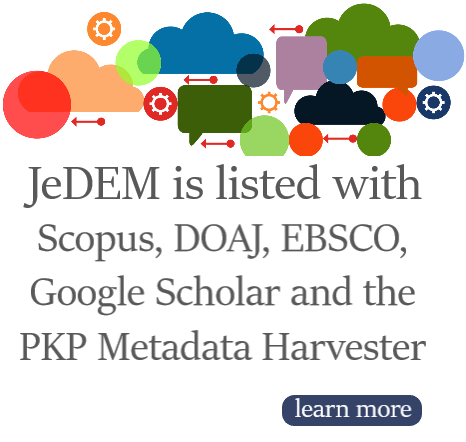Blockchain Technology in Lands Registration: A Systematic Literature Review
DOI:
https://doi.org/10.29379/jedem.v15i2.748Keywords:
Blockchain Technology, Digital Transformation, Land Registration, Digital Assets, Consensus MechanismAbstract
Blockchain technology (BT) is increasingly important in digital government as a means of efficient information management, decision making and an instrument for reform. This study presents a systematic review of BT's potential and application in land registration within low-income countries. The study uncovers diverse approaches to BT implementation that are influenced by local conditions and government structures. The study reveals that while there is a burgeoning interest in this field, actual implementations remain limited. The key barriers include resistance from government officials and a lack of local BT skills. Public blockchains have shown a high tendency for adoption, indicating a shift towards more transparent relationships between governments and citizens. The Hyperledger Fabric platform emerges as a popular choice due to its ability to provide secure, scalable, and robust solutions. However, there is a lack of clarity regarding the consensus mechanisms used, indicating a potential gap in current research practices. The study recommends an incremental approach to BT implementation, starting with non-threatening, transparent processes that could be expanded as part of broader government reform programs. Despite the potential of BT to revolutionize land registration systems and democratize tracking, it also poses a threat to existing power structures. Therefore, more robust empirical research is needed to evaluate the impacts and navigate the associated sociotechnical, legal, and institutional challenges. The study also proposes the establishment of a BT collaborative network among low-income countries to leverage shared experiences and develop a common framework for implementation. In the single instance where it was implemented in Georgia, public trust in government was restored. The study contributes to understanding how BT can be effectively harnessed to improve land registration systems in low-income countries.
Downloads
Metrics
Downloads
Published
How to Cite
Issue
Section
License
Copyright (c) 2023 Reyan M. Zein, Hossana Twinomurinzi

This work is licensed under a Creative Commons Attribution 3.0 Unported License.

JeDEM is a peer-reviewed, open-access journal (ISSN: 2075-9517). All journal content, except where otherwise noted, is licensed under the CC BY-NC 4.0 DEED Attribution-NonCommercial 4.0 International














